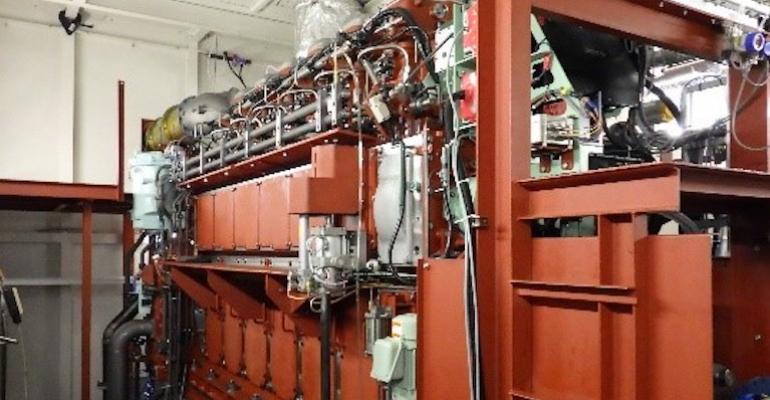The consortium comprising NYK Line, IHI Power Systems, Nihon Shipyard, Japan Engine Corporation, and ClassNK, have developed the ammonia-fuelled engine as part of the Green Innovation Fund Project* of the New Energy and Industrial Technology Development Organization (NEDO).
Tests of the engine were started at IHI Power Systems Ota plant on the four-stroke ammonia-fueled marine engine for the main engine of coastal vessels which is designed to be fitted to a tugboat in 2024.
While ammonia is seen as potential alternative fuel for shipping as it does emit CO2 there are concerns over its high toxicity and potential dinitrogen monoxide (N2O) emissions.
The tests mixed ammonia at fuel ratio of up to 80% and measurements taken on exhaust gases with stable operation being achieved. The amount of N2O and unburnt ammonia emissions were virtually zero, according to the consortium. No ammonia leakage was reported from the systems after shutdown.
Further land-based tests of the engine are to be carried out before it is installed an ammonia-fuelled tug – A-Tug.
The consortium is also aiming to develop a 250 mm bore engine for the auxiliary engine of an oceangoing vessel. The plan is to install the auxiliary engine on ammonia-fueled ammonia gas carrier scheduled for delivery in 2026 that is under development by NYK, Nihon Shipyard, Japan Engine, IHI Power Systems, and ClassNK.
“Starting with the success of this demonstration test, the consortium will continue to work together to strengthen the international competitiveness of the Japan maritime cluster, with the aim of building the world's first ammonia-fueled ships and achieving safe navigation, including by contributing to the development of international rules,” the consortium said.
Copyright © 2024. All rights reserved. Seatrade, a trading name of Informa Markets (UK) Limited.
Add Seatrade Maritime News to your Google News feed.  |

